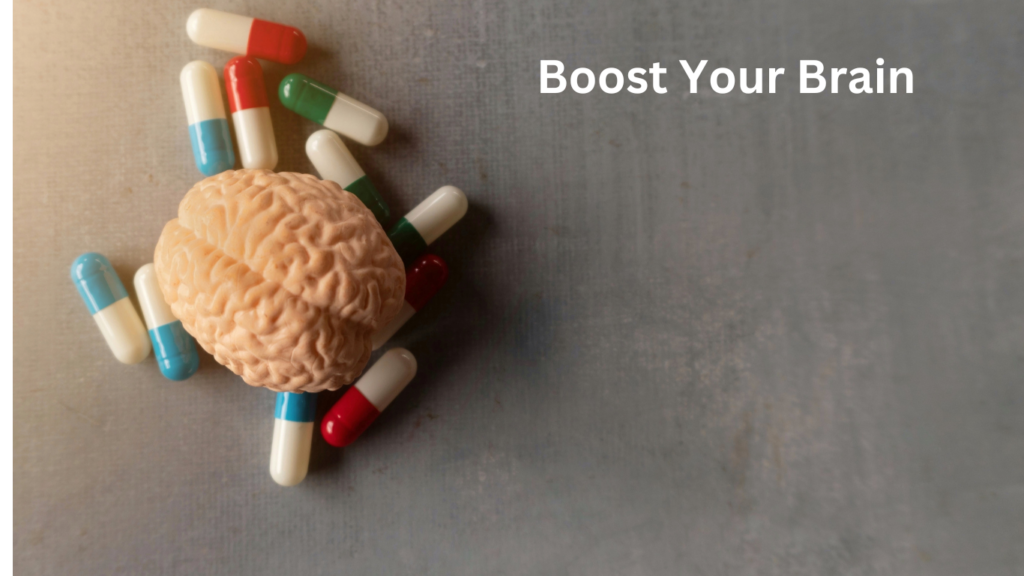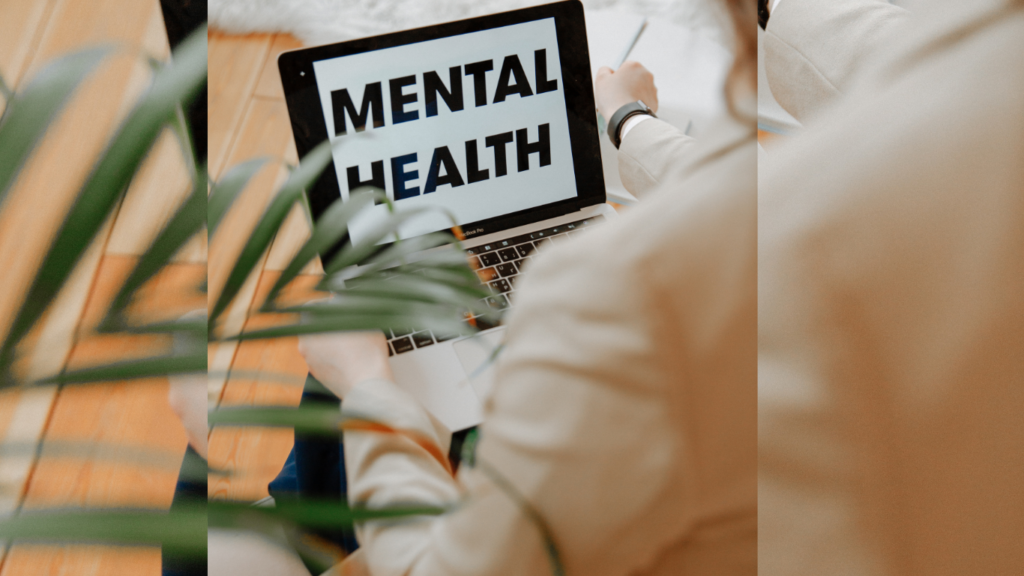Understanding Mental Fitness and Cognitive Health
1. The Importance of Mental Fitness
Staying mentally fit is crucial for overall well-being. It’s not just about physical health; mental fitness plays a significant role in our daily lives.
I firmly believe that maintaining mental sharpness is key to tackling challenges effectively and leading a fulfilling life.
By engaging in activities that stimulate the mind, like puzzles or learning new skills, I am actively investing in my cognitive health.
2. The Correlation Between Mental Fitness and Cognitive Health
The link between mental fitness and cognitive health is undeniable. When I prioritize mental fitness exercises, I notice a direct impact on my cognitive abilities.
It’s like giving my brain a workout to enhance memory, focus, and problem-solving skills.
Research consistently shows that individuals who maintain mental fitness are more likely to have improved cognitive function and a lower risk of cognitive decline as they age.
Therefore, it’s essential to incorporate mental fitness practices into daily routines for long-term cognitive health benefits.
Key Techniques for Enhancing Cognitive Health
1. Physical Exercise and Brain Function
Engaging in regular physical exercise is crucial for enhancing cognitive health.
Exercise boosts blood flow to the brain, promoting the growth of new brain cells and improving overall brain function.
Activities like:
- aerobic exercise
- strength training
- yoga
have been linked to enhanced memory, focus, and mental clarity.
By incorporating physical exercise into my daily routine, I can stimulate my brain and optimize cognitive performance.
2. Nourishing Your Brain Through Diet
A healthy diet plays a significant role in nourishing the brain and supporting cognitive function.
Consuming foods rich in antioxidants, omega-3 fatty acids, and vitamins can help protect brain cells from damage and reduce inflammation in the brain
Foods like blueberries, fatty fish, nuts, and leafy greens are known to have brain-boosting properties.
By fueling my body with nutrient-dense foods, I can support my brain health and enhance my cognitive abilities.
3. The Role of Sleep in Cognitive Health
Quality sleep is essential for cognitive health and overall well-being. During sleep, the brain consolidates memories, processes information, and clears out toxins that accumulate during the day.
Adequate sleep improves learning, problem-solving skills, and mood regulation.
By prioritizing a consistent sleep schedule and creating a relaxing bedtime routine, I can ensure that my brain gets the rest it needs to function optimally.
Mental Workouts to Boost Brainpower
As I delve into mental workouts to boost brainpower, it’s crucial to explore exercises that can enhance memory, critical thinking, and cognitive abilities.
These activities play a significant role in sharpening the mind and improving overall cognitive health.
Memory Training Exercises
When it comes to memory training exercises, I find activities like mnemonic devices, brain games, and visualization techniques particularly effective.
Mnemonic devices, such as acronyms or visualization of vivid images, help me retain information more efficiently.
Engaging in brain games like Sudoku, crossword puzzles, or memory matching games challenges my brain and enhances my memory capacity.
Furthermore, visualization techniques, where I create mental images to associate with information, have proven beneficial in recalling details accurately.
Critical Thinking Activities
Engaging in critical thinking activities is essential for strengthening cognitive abilities. I enjoy activities like puzzles, riddles, and logic games to stimulate my problem-solving skills.
These exercises challenge me to think creatively, analyze situations from different perspectives, and make sound decisions.
By regularly practicing critical thinking activities, I not only enhance my cognitive flexibility but also foster a sharper and more agile mind.
Language Learning and Cognitive Enhancement
Exploring a new language is a fantastic way to enhance cognitive function. When I immerse myself in learning a foreign language, I notice improvements in memory, multitasking, and overall brain health.
Acquiring a new language involves various cognitive processes, such as memory retention, pattern recognition, and linguistic skills.
Additionally, it boosts neuroplasticity, the brain’s ability to adapt and reorganize neural pathways, leading to improved cognitive function.
Learning a new language is not only intellectually stimulating but also offers a holistic approach to cognitive enhancement.
Mindfulness and Meditation
Stress Reduction and Cognitive Performance
When it comes to mental fitness, stress management plays a crucial role in optimizing cognitive performance.
Mindfulness and meditation are powerful techniques that can help reduce stress levels, leading to improved focus, memory retention, and problem-solving skills.
Practicing mindfulness involves staying present and aware of the current moment without judgment.
This technique enhances cognitive function by reducing distractions and increasing mental clarity.
By incorporating mindfulness into daily routines, I can experience a calmer mind and enhanced cognitive abilities, enabling me to tackle tasks more efficiently.
Meditation, on the other hand, involves training the mind to achieve a state of deep relaxation and heightened awareness.
Engaging in meditation practices such as focused attention or loving-kindness meditation can have a positive impact on cognitive performance.
Regular meditation sessions can strengthen concentration, sharpen memory, and boost overall brain function.
By incorporating mindfulness and meditation into my daily regimen, I can effectively manage stress levels, leading to enhanced cognitive performance and mental acuity.
Different Forms of Meditation for Mental Fitness

There are various forms of meditation that individuals can explore to improve their mental fitness. Some common types of meditation include:
- Focused Attention C: This form of meditation involves concentrating on a single point of focus, such as the breath or a specific object.
Focused attention meditation can enhance cognitive function by improving attention span and reducing mind wandering.
- Mindfulness Meditation: Mindfulness meditation focuses on cultivating awareness of the present moment without judgment.
This practice can help reduce stress, enhance focus, and promote clarity of thought.
- Loving-Kindness Meditation: Also known as Metta meditation, this practice involves generating feelings of love, compassion, and goodwill towards oneself and others.
Loving-kindness meditation can improve emotional intelligence, empathy, and overall well-being.
- Transcendental Meditation: Transcendental meditation utilizes silent mantras to achieve a state of deep relaxation and heightened awareness.
This form of meditation is known for reducing stress, promoting relaxation, and improving cognitive function.
Exploring different forms of meditation and incorporating them into a regular routine can significantly contribute to mental fitness and cognitive health.
Each type of meditation offers unique benefits that can support overall well-being and enhance cognitive performance.
The Impact of Social Interaction
1Building Relationships for Better Brain Health
In fostering relationships for improved brain health, engaging in social interactions plays a vital role.
Social connections have been linked to cognitive benefits, such as enhanced memory and sharper cognitive skills.
By regularly interacting with others, individuals can stimulate their brains, leading to better mental agility and cognitive function
These interactions can take various forms, including conversations, collaborations, and shared activities, all of which contribute to overall cognitive well-being.
2. Social Activities That Support Mental Fitness
Participating in social activities can significantly support mental fitness and cognitive health.
Activities like:
- group discussions
- team sports
- book clubs
- volunteering opportunities – provide avenues for social engagement that can boost brain function.
Interaction with diverse groups of people through these activities can help in developing cognitive flexibility, creativity, and problem-solving abilities.
Engaging in social endeavors not only fosters a sense of belonging and purpose but also offers cognitive stimulation that is essential for maintaining mental sharpness and cognitive health.
Tracking Progress and Setting Goals
Methods to Measure Mental Fitness
When it comes to tracking progress in mental fitness, I find it essential to use reliable methods to measure cognitive health improvements accurately.
One effective way is through cognitive assessments that evaluate memory, attention span, problem-solving abilities, and overall cognitive function.
These assessments, whether conducted by professionals or through online tools, provide valuable insights into one’s cognitive strengths and areas that may need improvement.
By tracking performance on these assessments over time, I can assess progress and make informed decisions about adjusting my mental fitness routine.
Realistic Goal-Setting for Cognitive Improvement
Setting realistic goals for cognitive improvement is crucial for a structured approach to enhancing mental fitness.
I believe in setting specific, measurable, achievable, relevant, and time-bound (SMART) goals to track my progress effectively.
For example, I may set a goal to complete a certain number of brain-training exercises per week or learn a new skill within a specified timeframe.
By breaking down larger cognitive health goals into smaller, achievable targets, I can maintain motivation and stay focused on continuous improvement.
This systematic approach allows me to monitor my progress, celebrate achievements, and make necessary adjustments to my mental fitness routines for optimal cognitive well-being.
Overcoming Challenges in Mental Fitness Journeys
Identifying Potential Roadblocks
In my mental fitness journey, I’ve encountered various roadblocks that can hinder progress. One common challenge is the lack of consistency in maintaining healthy habits.
It’s essential to stay vigilant and address any disruptions promptly. Identifying triggers that lead to lapses in routine can help in creating strategies to overcome them.
For instance, if stress derails your mental fitness routine, practicing mindfulness techniques can help in managing stress effectively.
Being aware of potential roadblocks allows me to proactively tackle them and stay on track towards cognitive health.
Strategies for Staying Motivated and Consistent
To maintain motivation and consistency in enhancing cognitive health, I rely on several strategies.
Setting achievable short-term goals keeps me motivated as I can track progress regularly.
Rewarding myself for accomplishing milestones acts as a positive reinforcement to stay consistent.
Additionally, I find it beneficial to vary my mental fitness activities to prevent monotony and burnout.
Incorporating social support by sharing goals with friends or joining group activities adds a sense of accountability and encouragement.
By implementing these strategies, I ensure that my mental fitness journey remains engaging and effective.


 Conniella Hoffmanney (Author & Lifestyle Editor)
Conniella Hoffmanney is an author and the Lifestyle Editor at The Vital Insight Hub. Specializing in cultural trends and lifestyle journalism, Conniella curates the platform’s content on entertainment, art, and social dynamics. Her creative vision and engaging writing style give readers a unique and enriching perspective on the cultural events that shape our world.
Conniella Hoffmanney (Author & Lifestyle Editor)
Conniella Hoffmanney is an author and the Lifestyle Editor at The Vital Insight Hub. Specializing in cultural trends and lifestyle journalism, Conniella curates the platform’s content on entertainment, art, and social dynamics. Her creative vision and engaging writing style give readers a unique and enriching perspective on the cultural events that shape our world.

